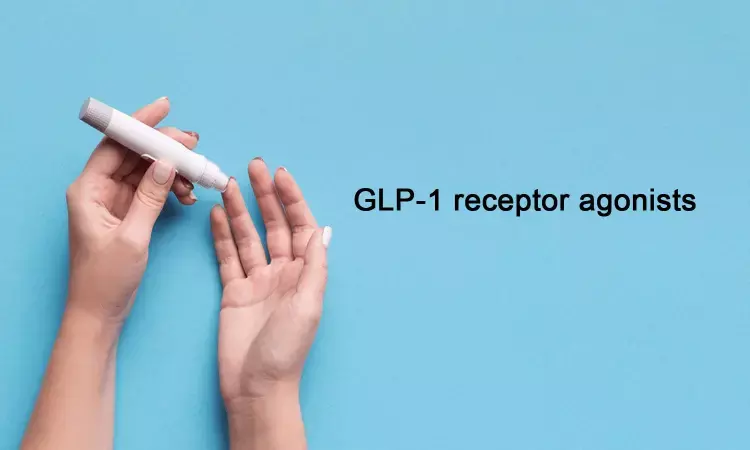- Home
- Medical news & Guidelines
- Anesthesiology
- Cardiology and CTVS
- Critical Care
- Dentistry
- Dermatology
- Diabetes and Endocrinology
- ENT
- Gastroenterology
- Medicine
- Nephrology
- Neurology
- Obstretics-Gynaecology
- Oncology
- Ophthalmology
- Orthopaedics
- Pediatrics-Neonatology
- Psychiatry
- Pulmonology
- Radiology
- Surgery
- Urology
- Laboratory Medicine
- Diet
- Nursing
- Paramedical
- Physiotherapy
- Health news
- Fact Check
- Bone Health Fact Check
- Brain Health Fact Check
- Cancer Related Fact Check
- Child Care Fact Check
- Dental and oral health fact check
- Diabetes and metabolic health fact check
- Diet and Nutrition Fact Check
- Eye and ENT Care Fact Check
- Fitness fact check
- Gut health fact check
- Heart health fact check
- Kidney health fact check
- Medical education fact check
- Men's health fact check
- Respiratory fact check
- Skin and hair care fact check
- Vaccine and Immunization fact check
- Women's health fact check
- AYUSH
- State News
- Andaman and Nicobar Islands
- Andhra Pradesh
- Arunachal Pradesh
- Assam
- Bihar
- Chandigarh
- Chattisgarh
- Dadra and Nagar Haveli
- Daman and Diu
- Delhi
- Goa
- Gujarat
- Haryana
- Himachal Pradesh
- Jammu & Kashmir
- Jharkhand
- Karnataka
- Kerala
- Ladakh
- Lakshadweep
- Madhya Pradesh
- Maharashtra
- Manipur
- Meghalaya
- Mizoram
- Nagaland
- Odisha
- Puducherry
- Punjab
- Rajasthan
- Sikkim
- Tamil Nadu
- Telangana
- Tripura
- Uttar Pradesh
- Uttrakhand
- West Bengal
- Medical Education
- Industry
Study Finds Diabetic Patients on GLP-1 Medications Less Likely to Experience Gallstones and Ileus

USA: In a significant breakthrough for diabetes management, a recent study has uncovered compelling evidence suggesting that patients on glucagon-like peptide-1 receptor agonist (GLP-1) medications may be at a reduced risk of developing gallstones and ileus compared to those on alternative treatments. The findings, published in Epic Research, shed new light on the potential benefits of GLP-1 receptor agonists in mitigating gastrointestinal complications commonly associated with diabetes.
According to the study, diabetes patients who were prescribed GLP-1 medications were more likely to experience delayed gastric emptying or gastroparesis compared to patients not taking the GLP-1 drugs.
A separate study by Epic found that patients without diabetes who took the GLP-1 drugs semaglutide and liraglutide for weight loss were at greater risk of ileus, gastroparesis, and gallstones compared with people who took another class of drugs.
Gastrointestinal (GI) side effects, including gallstones, delayed gastric emptying, and ileus, have been associated with GLP-1 medications. The US Food & Drug Administration (FDA) required a safety label for Ozempic (semaglutide) warning of the potential risk of ileus.
Delayed gastric emptying is characterized by a slowdown in the food movement from the stomach to the small intestine. Moreover, complications such as gallstones and ileus, a condition characterized by impaired intestinal motility, pose additional challenges, often exacerbating the burden of managing this chronic metabolic disorder.
To further understand the correlation between GLP-1 medications and gastrointestinal side effects, the researchers studied 12 million diabetic patients, including 7.4 million not on GLP-1 medications and 4.6 million on GLP-1 medications. They wanted to increase the likelihood that only patients who are being actively managed, are studied. For the patients on GLP-1 medications, that prescription served as adequate evidence. For patients not on GLP-1 medications, Only those who had a completed HbA1c test were included.
The research team adjusted for patient age, sex, social vulnerability, race, BMI classification, ethnicity, and insulin usage.
The following were the key findings of the study:
- Delayed gastric emptying (gastroparesis) was more likely for diabetic patients on most GLP-1 medications studied compared to diabetics not on GLP-1.
- Patients on exenatide had the greatest increase in the likelihood of this condition (135%), while those on tirzepatide had a 29% reduction in likelihood.
- Gallstones and ileus were less likely for patients prescribed most of the GLP-1 medications studied compared to diabetic patients not prescribed a GLP-1.
- Patients on semaglutide had a 22% reduced likelihood of gallstones, while those on tirzepatide did not experience a statistically significant change in the likelihood.
- For ileus, tirzepatide had the greatest reduction in likelihood (62%), while exenatide had the lowest reduction (43%).
The findings revealed that diabetic patients prescribed four of the five GLP-1 medications studied experienced an increased likelihood of delayed gastric emptying (gastroparesis) compared to those not on a GLP-1 medication. Diabetic patients prescribed GLP-1 medications are less likely to be diagnosed with ileus or gallstones compared to diabetic patients not on GLP-1 medications.
As further research continues to unravel the intricate mechanisms underlying the benefits of GLP-1 medications in diabetes management, the study represents a crucial step forward in advancing our understanding of this complex metabolic disorder. Armed with this knowledge, healthcare providers are better equipped to empower diabetic patients in their journey toward improved health and well-being.
Reference:
Bartelt K, Deckert J, Allen S, Joyce B. Delayed Gastric Emptying More Likely, Gallstones and Ileus Less Likely for Diabetic Patients on GLP-1 Medications Compared to Diabetics on Other Treatments. Epic Research. https://epicresearch.org/articles/delayed-gastric-emptying-more-likely-gallstones-and-ileus-less-likely-for-diabetic-patients-on-glp-1-medications-compared-to-diabetics-on-other-treatments. Accessed on May 8, 2024.
Dr Kamal Kant Kohli-MBBS, DTCD- a chest specialist with more than 30 years of practice and a flair for writing clinical articles, Dr Kamal Kant Kohli joined Medical Dialogues as a Chief Editor of Medical News. Besides writing articles, as an editor, he proofreads and verifies all the medical content published on Medical Dialogues including those coming from journals, studies,medical conferences,guidelines etc. Email: drkohli@medicaldialogues.in. Contact no. 011-43720751


